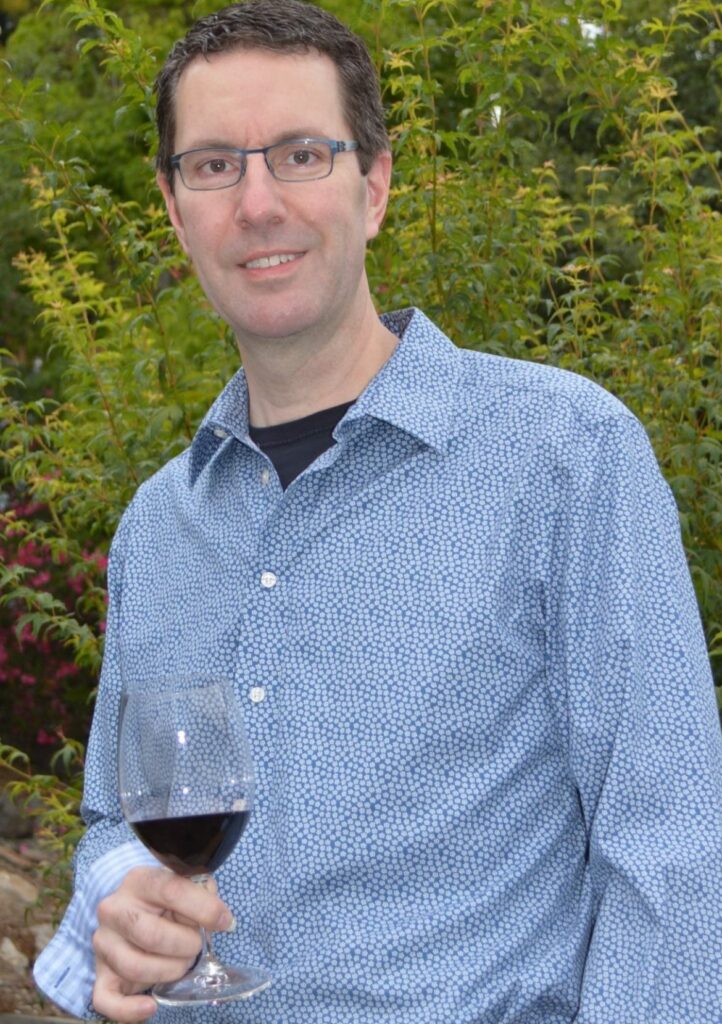
Dean Katzung, a Healdsburg-based winemaker says, “There’s true magic in winemaking. Each year we create something that didn’t exist before, and each harvest year is different. There’s both art and science in winemaking, and many decisions to make along the way. Winemaking is my occupation and recreation.”
Dear Readers,
I thought you’d find it interesting to learn about locals in our community involved in various careers. We’ll cover what the career entails, the rewards and challenges, and how to get into the field. Living in wine country, I’m starting with a focus on winemaking and meet with a local winemaker, Dean Katzung.
What’s involved in the career of winemaking, Dean?
To be a good winemaker you need a good palate to be able to evaluate grapes and wine at all stages. You need analytical, scientific, and problem-solving skills – there will be problems along the way. Above all, you need a genuine interest in wine. That’s what spurs your curiosity to keep thinking, learning and growing as a winemaker.
You have to really love it. I know for me, most every vacation my family takes involves visiting wineries. I’d say that winemaking is both my occupation and recreation. I love getting outdoors, working in a team, and reacting to changing conditions.
How did you become a winemaker?
I’ve always loved science and followed that path through my doctorate in biochemistry. But pure science and research weren’t enough. I needed something more tangible. Being a Wisconsin native, I was lucky to join the Jacob Leinenkugel Brewery as a brewer and found it a rewarding form of biochemistry. But for someone with a science background, brewing proved to be more science (especially engineering) than art.
I moved west to winemaking because it has seasonality to it, and winemakers make countless decisions throughout a vintage to make the best wine they can. The harvest period, roughly Labor Day to Halloween, is high-intensity time. We work closely with our vineyard managers and operations team to find the optimum time to pick each of our vineyards. Winemaking is a team process. With smaller wineries, it can be a team of 2-3 and with larger wineries it can be a team of 10, 20 or more. The team needs to work well together. They need to have the talent, and a balance of artisanal flair and scientific rigor, plus a kind of human chemistry to make the magic come together.
What credentials, skills and background are needed to become a winemaker?
There are typically two tracks. First, people who go straight to college to earn a Bachelor’s and or Master’s in Enology (the study of winemaking). Schools such as UC Davis, Fresno State and Cal Poly offer programs in Enology. Many of these students are legacy people who grow up in winemaking or farm families.
I followed the other track, which is to come to winemaking from another career. Often, they end up at a school like Davis, too, just later in life. But there are other ways to get into a winery, such as diving in as seasonal help.
How would one become a winemaker, say mid-career?
Our Santa Rosa Junior College offers classes in grape growing, cellar operations, basic winemaking and sensory training (developing your palette). With that training, you can often get your foot in the door through a seasonal job at a winery. You’d need to prove yourself to advance to a secure position. Once in the field, there is always opportunity for proven talent.
Are there downsides to being a winemaker?
Purple teeth! Winemaking is not all glitz and glamour. As with most other professions, we deal with spreadsheets, too, and lots of logistics.
Anything you’d like to add, Dean?
My philosophy after 20 years of California winemaking and visiting some of the most traditional and respected wine regions in Europe is I like the dichotomy of celebrating the good and traditional ways, and being open to innovation for improvements. There is a time and place for both in winemaking. We need to capture and celebrate the innate goodness in the grapes, and also be open to improvement. Again, a dichotomy that requires both experience and good judgement.
————-
Thank you, Dean. Perhaps others in our community are now inspired to look into the fascinating career of winemaking.
Coach Joan
PS- Readers, if you have interest in learning about a specific career, please write to me at [email protected]
